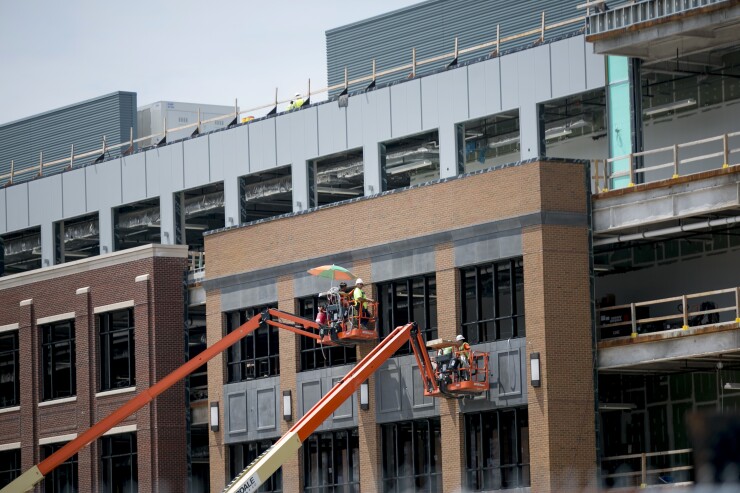DALLAS -- Taxes paid by Detroit Pistons players, employees, and visiting NBA players could fund neighborhood improvements across Detroit and as a last resort make up any shortfalls in city pension or bond obligations.
The city council on Tuesday approved a resolution introduced in June by Councilwoman Mary Sheffield to divert those taxes to generate a projected $1.3 million annually for Detroit’s Neighborhood Improvement Fund.
The proposal would set aside the income tax revenue paid from the multi-million dollar salaries of the NBA players as well as other Pistons employees and Palace Sports & Entertainment employees once the team moves to Little Caesars Arena.

Detroit Chief Financial Officer John Hill said that the reason the city reserved the right to use the Pistons tax revenue to cover pension or debt obligation shortfalls is because of the large pension obligation payment the city
“We knew that in meeting our pensions and debt obligation in 2024 and 2025 that those funds get very tight,” Hill said at a council meeting on June 27. “If this kind of valve wasn’t there I would have a lot of concerns that in those years its tighter and we don’t get revenues we expect we don’t get any of those funds to meet those obligations.”
Sheffield said the fund would enable the city to focus on blight removal, home repairs for seniors, educational opportunities for young people, and affordable housing development in neighborhoods outside of downtown and Midtown. Council members will have the power to propose projects and consider project proposals from Mayor Mike Duggan's office.
Additionally, the improvement fund can be used toward city pension or bond obligations when general fund revenues are insufficient, should there be any unforeseen shortfall, a spokesperson for Sheffield confirmed.
“This sets the framework; it expresses what the fund should be used for; and it ultimately gives Council the ability to propose projects,” she said.
The income tax dollars would be available for use in the Neighborhood Improvement Fund in the next fiscal year. Sheffield said that the fund was created in response to complaints from Detroit constituents who had complained the city’s recovery efforts had left them out.
The fund will be in place until $34.5 million in municipal bonds to finance modifications to the Little Caesars Arena are paid off. The bonds were approved by the council on June 20. As of this week, the date for issuance had not yet been established, according to the city finance director, John Naglick.
The city plans to capture the school operating tax that is used to service $250 million of bonds DDA bonds previously issued for the arena project in addition to the $34.5 million of additional bonds the city planned to issue for the Pistons relocation.
A lawsuit filed at the end of June still threatens to derail that plan. The lawsuit, filed in late June by community activist Robert Davis and Detroit city clerk candidate D. Etta Wilcoxon against the Detroit Public Schools Community District, seeks to force a vote on the $34.5 million public funding portion of the Pistons deal.
On Monday the National Basketball Association, Palace Sports & Entertainment and Olympia Entertainment were added to the federal lawsuit. The NBA board of governors or the Detroit Pistons could not be reached for comment on the development.





